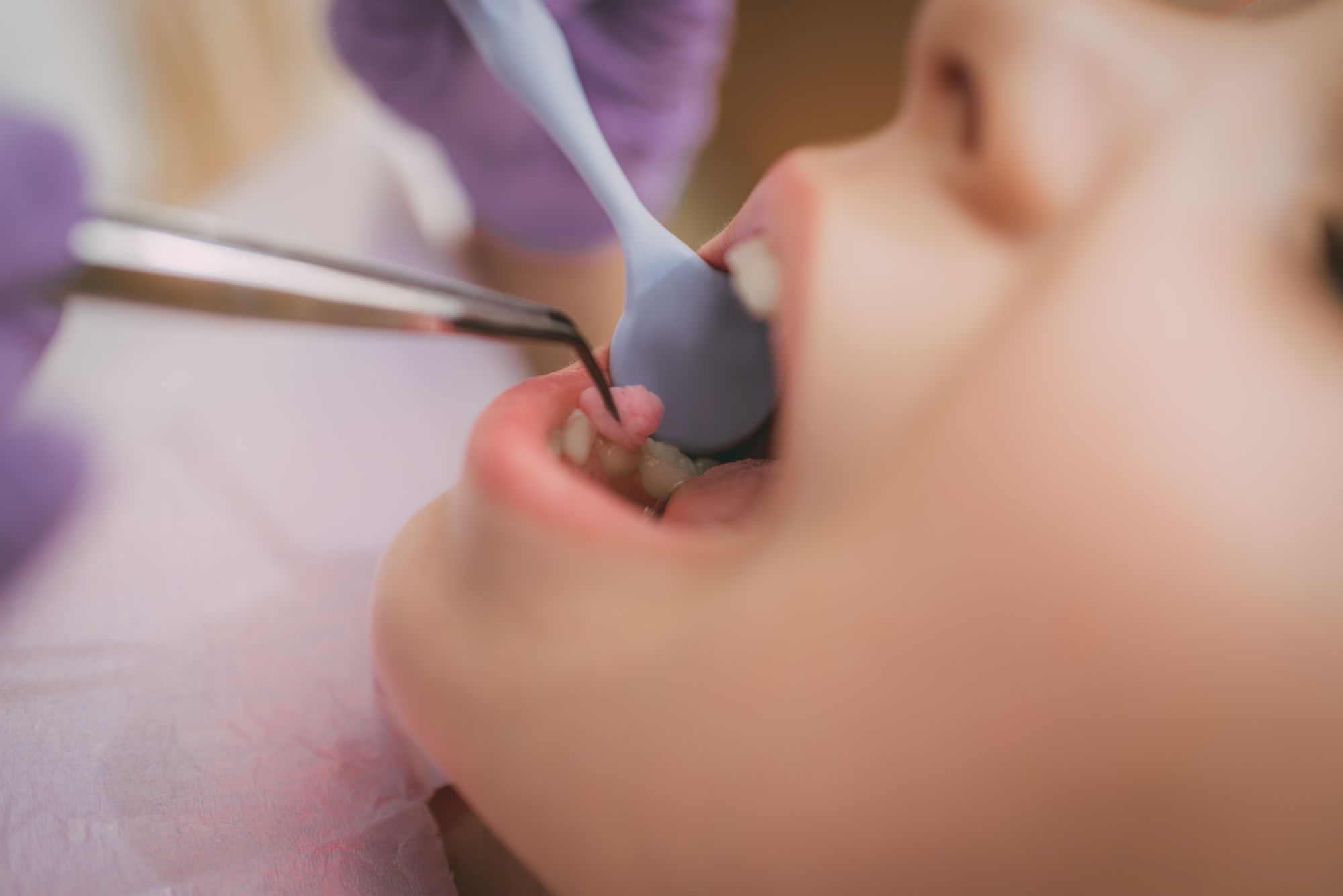Canker sores, also known as aphthous ulcers, are small, painful ulcers that develop in the mouth. They are not contagious and can appear on the soft tissues inside the mouth, such as the inner cheeks, gums, and tongue.
Causes of Canker Sores
There isn’t a single definitive cause for canker sores, but some factors that may contribute to their development include:
- Stress or anxiety
- Hormonal fluctuations
- Food sensitivities or allergies
- Nutritional deficiencies
- Mouth injuries
- Weakened immune system
Types of Canker Sores
Canker sores are generally classified into three types:
- Minor canker sores: These are the most common and typically heal within 7-10 days without scarring.
- Major canker sores: Larger and deeper than minor sores, these can take weeks to heal and may leave scars.
- Herpetiform canker sores: These appear as clusters of tiny sores and typically heal within a week or two.
The White Stuff in Canker Sores
Pseudomembrane
The white stuff you see in a canker sore is called a pseudomembrane. It forms as a result of inflammation and is comprised of a mixture of fibrin, a protein involved in blood clotting, and inflammatory cells. This white layer is a natural part of the healing process and serves to protect the underlying tissue.
Healing Process
As the canker sore heals, the white pseudomembrane starts to break down, revealing the pink or red tissue underneath. This is a sign that the healing process is progressing, and the sore should resolve itself within a few days to a couple of weeks, depending on its severity.
Symptoms and Duration of Canker Sores
Identifying Canker Sores
Canker sores are generally round or oval-shaped with a white or yellow center surrounded by a red border. They can be quite painful, making it difficult to eat, drink, or speak.
Duration of Canker Sores
Minor canker sores usually resolve within 7-10 days, while major sores may take up to six weeks to heal. Herpetiform sores typically heal within 1-2 weeks.
Treating Canker Sores
Over-the-Counter Remedies
There are several over-the-counter treatments available to help alleviate the pain and discomfort caused by canker sores. These include:
- Topical anesthetics: Numbing gels or creams that can be applied directly to the sore to provide temporary pain relief.
- Mouthwashes: Medicated mouthwashes that contain ingredients to reduce inflammation and promote healing.
- Oral pain relievers: Non-prescription pain relievers like ibuprofen or acetaminophen can help manage pain and reduce inflammation.
Home Remedies
In addition to over-the-counter treatments, there are several home remedies that can help ease the discomfort of canker sores:
- Rinsing your mouth with a warm saltwater solution or baking soda rinse can help reduce inflammation and promote healing.
- Applying a small amount of honey or coconut oil to the sore may provide some relief and promote healing.
- Avoiding spicy, acidic, or rough-textured foods that may irritate the sore and worsen pain.
Preventing Canker Sores
Oral Hygiene
Maintaining good oral hygiene is essential for preventing canker sores. This includes:
- Brushing your teeth twice a day with a soft-bristled toothbrush
- Flossing daily to remove plaque and food particles
- Using a non-abrasive toothpaste and alcohol-free mouthwash
Avoiding Triggers
Identifying and avoiding triggers that may cause canker sores can also help prevent their occurrence. Common triggers include:
- Stress: Practicing stress management techniques like deep breathing, meditation, or exercise
- Food sensitivities: Avoiding foods that may trigger canker sores, such as citrus fruits, tomatoes, or spicy foods
- Nutritional deficiencies: Ensuring a balanced diet with sufficient vitamins and minerals, including vitamin B12, iron, and folic acid
When to See a Doctor
While most canker sores will heal on their own, it’s important to see a doctor if you experience any of the following:
- Sores that are unusually large or persist for more than two weeks
- Frequent or recurring canker sores
- Severe pain that interferes with eating, drinking, or speaking
- Signs of infection, such as pus, fever, or swollen glands
Conclusion
The white stuff in a canker sore is a natural part of the healing process and serves to protect the underlying tissue. While canker sores can be painful and inconvenient, they usually resolve on their own within a few days to a couple of weeks. Proper oral hygiene, avoiding triggers, and seeking medical advice when necessary can help prevent and manage canker sores.















